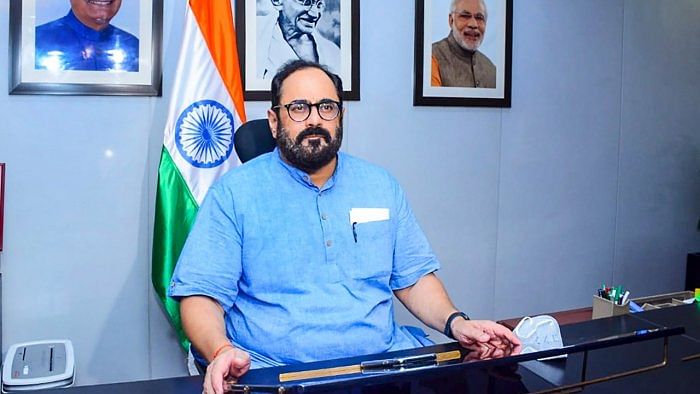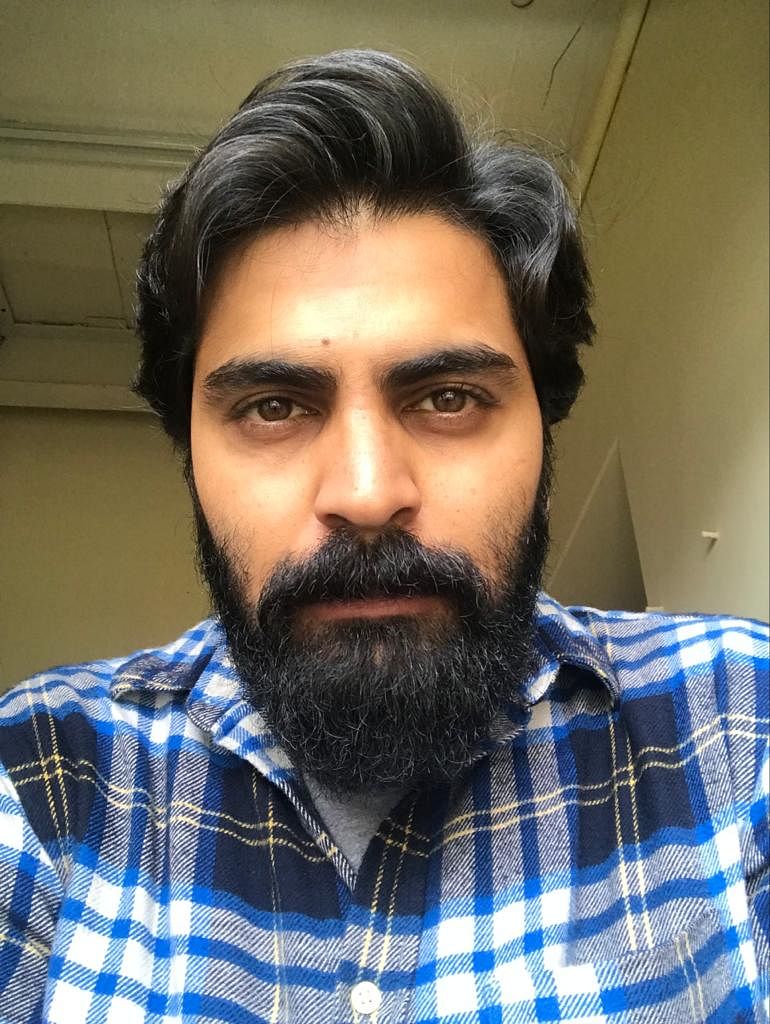
Union Minister of State for Electronics, Information Technology, Skill Development and Entrepreneurship Rajeev Chandrasekhar is a technocrat and a 3-term Rajya Sabha member from Karnataka who wants a billion Indians connected to the internet. In a chat with Bharath Joshi, he talks about technology, free speech and the need for internet shutdowns.
Excerpts:
What have you identified as your top focus areas in MeitY and skilling?
Both ministries are great opportunities to fulfil PM Modi’s vision to empower the youth. We’re currently looking at how skill development, training and entrepreneurship can be integrated into education through the NEP. We want to expand training the youth by using technology. There are close to 18,000 training centres around the country. We’re creating a digital platform to make skills and training available on the same platform keeping employability as the focus.
In MeitY, one of the biggest focus areas will be ensuring connectivity with remote-working becoming the new normal. The second focus is to double our exports this year and expand the digital economy to a trillion dollars in three years. Currently, only 26 companies have a turnover of over Rs 5,000 crore. We want this number to go up. They want a trusted partner in a post-Covid environment and India is becoming that trusted partner.
What about the electronics manufacturing sector?
In 2014, the sector was worth Rs 1.9 lakh crore. Thanks to production-linked incentives (PLI) schemes, we’ve reached Rs 5 lakh crore. The PM’s ambition is very large for India to emerge as an electronics manufacturing hub. The ministry is announcing more PLI schemes.
India missed the PC revolution, but made up for it with the mobile phone, which brings us to internet connectivity. How are we doing on this front?
At present, some 700 million Indians are online. We want more than a billion Indians online by 2024, making India one of the largest connected countries in the world. The only other country like this will be China. But, our internet will be free, open, safe and accountable. China’s is more like an intranet, which is closed.
When it comes to digital communications infrastructure in rural areas, right-of-way is an issue states face. Is this an obstacle your ministry is addressing?
Well, the biggest obstacle was actually the lack of realisation among the political leadership in the states on the power of the internet vis-a-vis citizens. Post-Covid, this realisation has dawned. I talked to Chief Minister Basavaraj Bommai who is keen to partner with the Centre to see that all our villages are connected with the internet. We’re developing a plan to wire up villages. Currently, 30 villages in each Karnataka district are undergoing a pilot project called Digital Village. It’s happening in 700 districts across India.
You’ve pitched the idea of virtual IT parks in smaller towns. What exactly is this?
Two questions come up almost every time I travel in Karnataka: Why are IT jobs mostly in Bengaluru? Why are IT parks vacant? The answer now is, forget IT parks; that may or may not happen. The way to create tech inclusiveness and bridge the rural-urban divide is to provide more ability for youngsters to work from home once there’s good internet connectivity. They should be able to be a part of TCS, HCL or Wipro without having to move to Bengaluru. Karnataka can and will take lead in this.
Let’s talk about the new IT rules. The government’s intent to make platforms accountable for fake news has led to concerns that the new rules are a way to control news, especially ones critical of the administration.
The IT Rules are meant to ensure user safety and intermediary accountability to users. This is essentially to ensure that any user of a news or social media platform can raise a concern and the platform is liable to address it. To that extent, intermediaries have to appoint compliance officers. On digital media ethics, it’s subjudice. But, it’s not meant to be about the government supervising the media. The free nature of Indian media remains intact and [the rules] envisage a self-regulation.
The code of ethics for digital media talks about ‘half-truths’, ‘decency’ and ‘good taste’. Aren’t these subjective notions?
One of the realities about laws and regulations in the digital space is that they are evolving over jurisprudence. The debate around these rules isn’t necessarily bad. People can seek clarification and we’re open. We believe very clearly that Article 19, for instance, is embedded in the Constitution. Nobody can take that away. Our courts are there to ensure that.
Speaking of free speech, India reportedly had the highest number of internet shutdowns in the world last year. How do you see this practice, which is seen as a tool to suppress protests and political opponents?
We have 1.3 billion people. We have to legitimately accept that there’s a lot of mischief and incitement that goes on. The government has the sovereign obligation to take down problematic content. Section 69A of IT Act allows takedowns. When this went to the Supreme Court, Section 66A was struck down while 69A was retained. It’s essential for the government to have the power to takedown whenever there’s harmful content. But, I want to assure people that the internet in India will always be free, open, safe, trusted and accountable.
Is the government considering amendments to the IT Act?
If you look at the legislative framework governing the Internet, it’s quite old. Legislations have to be contemporary and respond to changing needs. The last amendment was in 2008. There are discussions taking place on how we can make the laws more modern and cater to different stakeholders in light of the digital economy.
On skilling, how will the government’s approach change post-Covid?
Post-Covid, skilling requirements have undergone a structural change. There are a lot more digital skills required, micro-entrepreneurship required. The core focus is empowering the youth with upskilling and reskilling. Those coming back from the Middle East today need new skills (reskilling) whereas migrants going back to their villages need upskilling. There are over 4,500 training courses that the National Council for Vocational Training (NCVT) has devised and developed with sector skill councils.
The informal sector is seen as a big challenge for India’s skilling programme.
One of the redesign areas is, we’re going to significantly expand our focus of skilling in the informal and traditional skill clusters. There are many geographies where there are traditional skills - carpentry, masonry, metal work, steel work - for which clusters have been identified.
